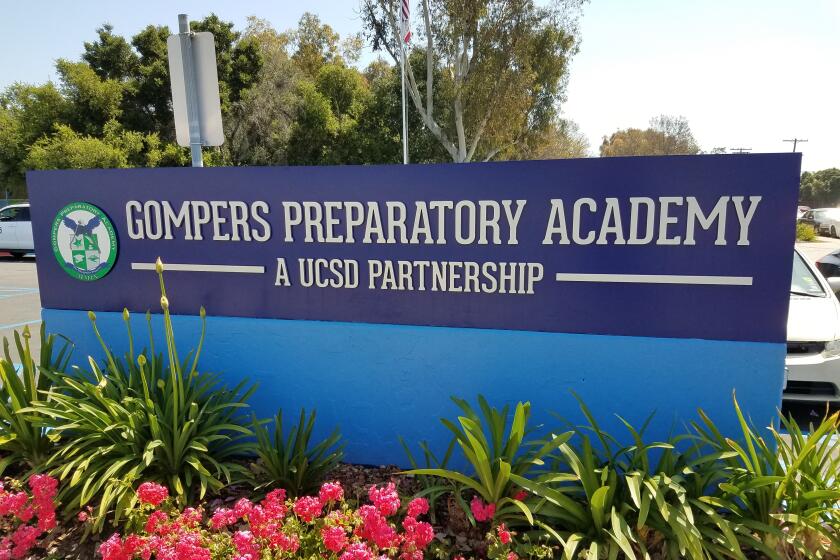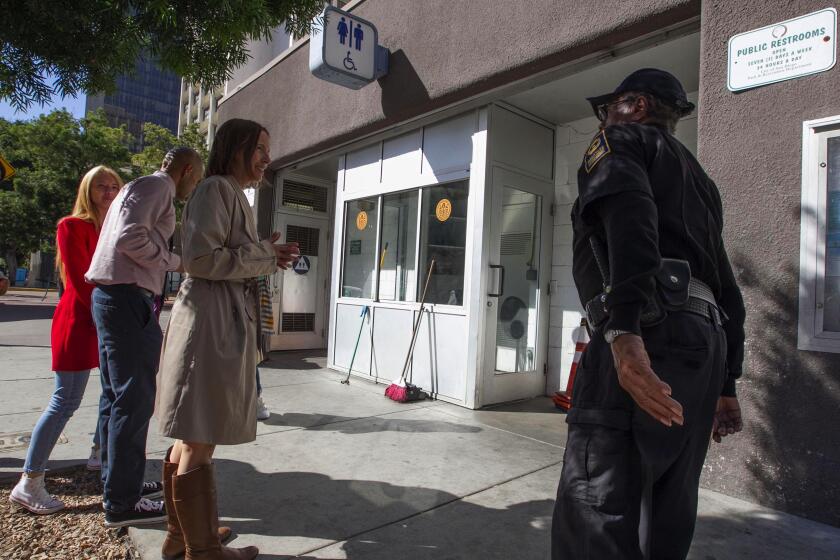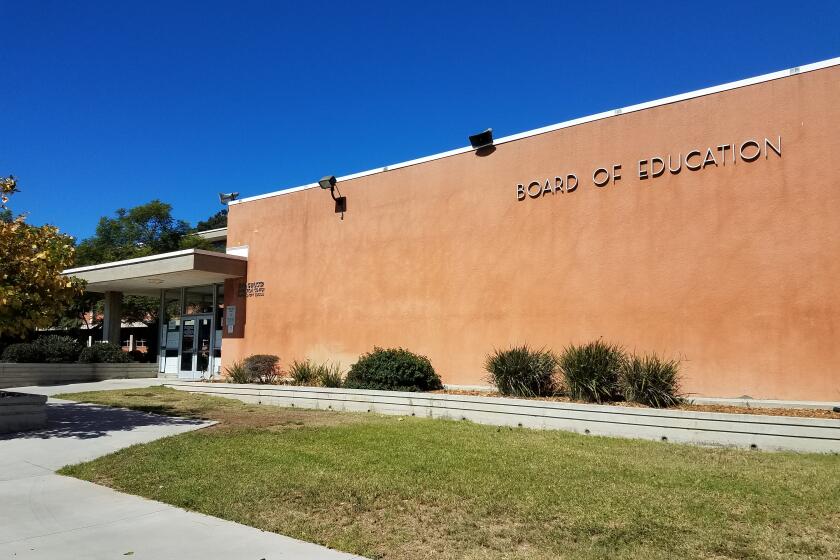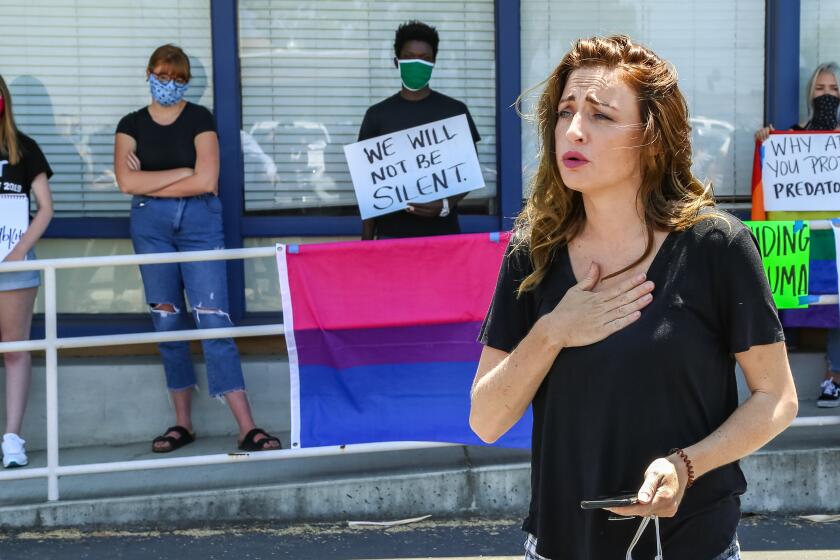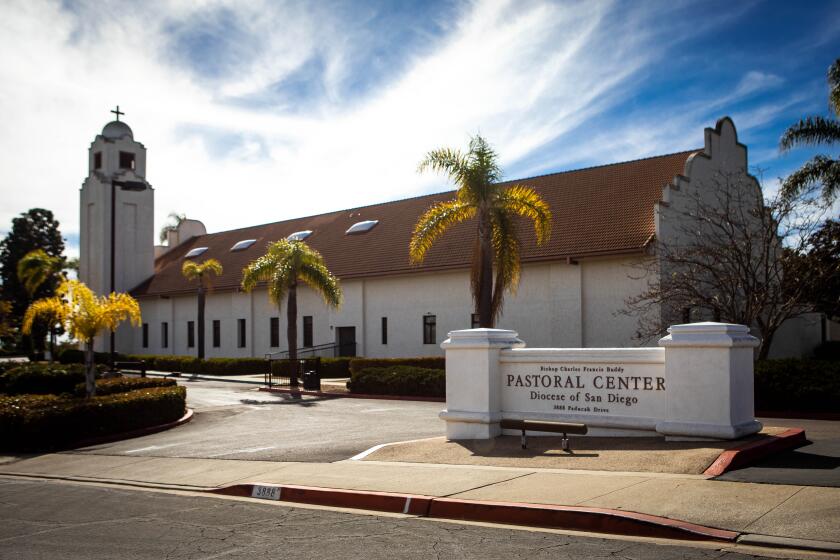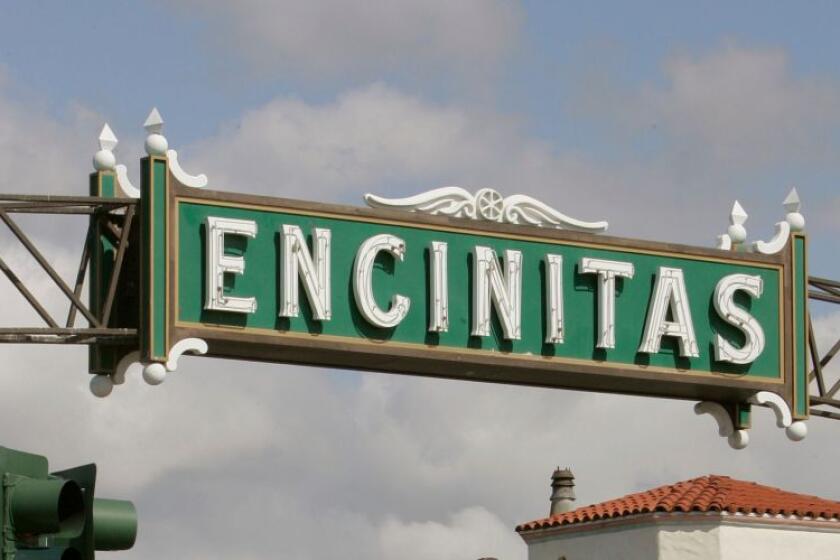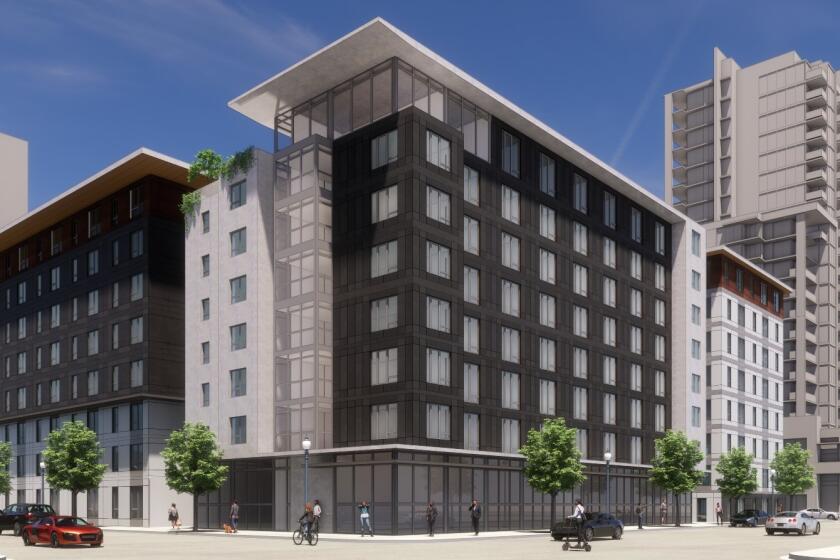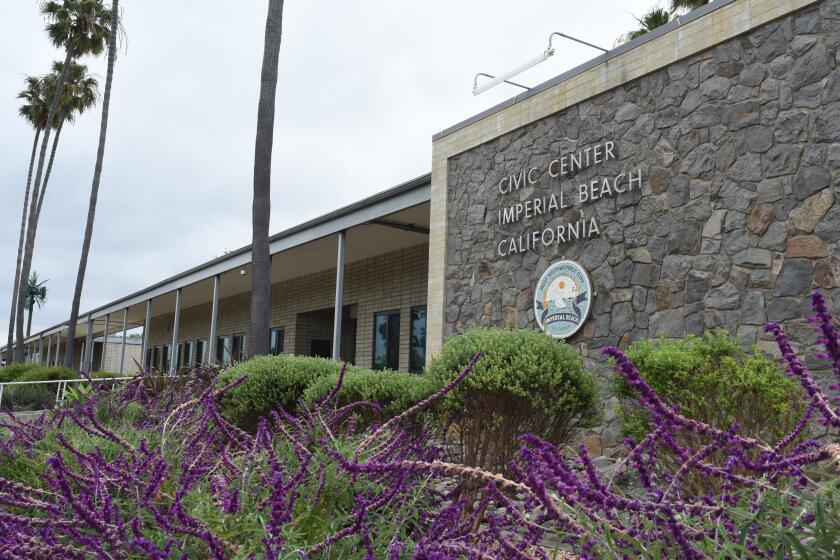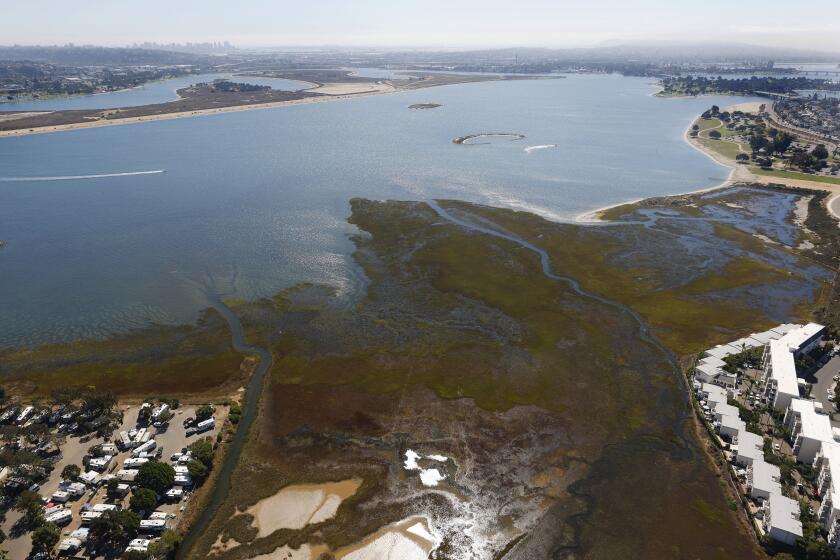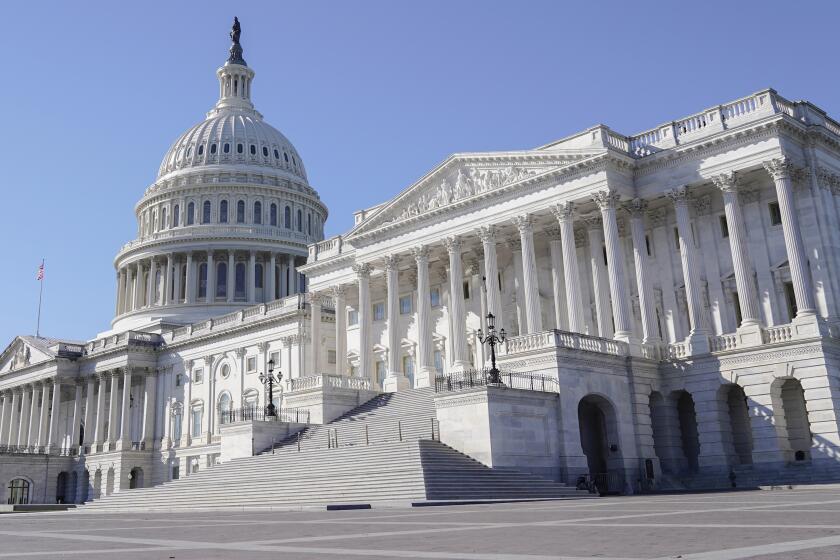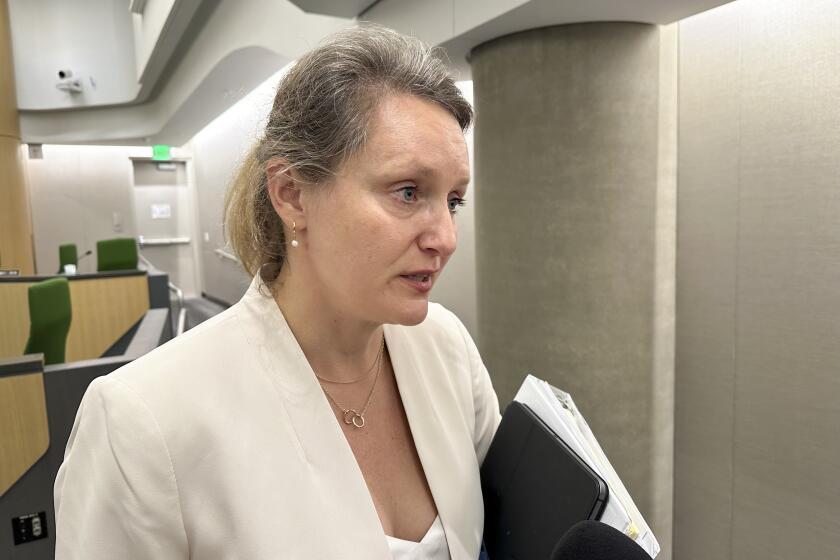Poll shows 8 California ballots might pass in general election but lots of undecideds
California voters appear to favor measures impacting ride-share employees, rent control, affirmative action, commercial taxes, criminal justice reforms and more
With five weeks until the election, a poll released Tuesday indicates eight California ballot issues — including propositions that would help ride-sharing companies that employ contract workers and that would allow affirmative action in government decision-making — are on a path toward passage in November, but some of those initiatives could swing either way, political science experts say.
The San Diego Union-Tribune/10News poll, conducted by SurveyUSA, polled some 590 likely voters about how they would vote on:
For the record:
11:21 a.m. Oct. 1, 2020A graphic in a previous of this story had incorrect cross tabs for the presidential race. The graphic has been updated.
- Proposition 15, which would re-value commercial and industrial properties, to raise money for public schools, community colleges
- Proposition 16, which would allow diversity to be considered as a factor in public employment and contracting decisions
- Proposition 17, which restores voting rights to former inmates
- Proposition 19, which gives new rights to homeowners over age 55 or who are the victim of a natural disaster
- Proposition 20, which would re-classify certain crimes and change parole on other crimes
- Proposition 21, which would take from the state and give to local authorities certain rent control authority
- Proposition 22, which would regulate whether drivers for ride-share services such as Uber and Lyft, and drivers for delivery services, such as Instacart and Door Dash, are considered employees or independent contractors
- Proposition 23, which would regulate how kidney dialysis in administered in California
SurveyUSA said nearly all those measures are favored to pass except Proposition 20, which it said is a “coin-toss” because more than 40 percent of respondents said they were unsure how they would vote.
But political science experts said Tuesday that they are not convinced that the fate of the other ballot measures is set in stone, since many people are undecided.
“Undecided voters will still make or break some of these measures,” said Thad Kousser, chair of the political science department at UC San Diego. “The history of propositions shows us time and again that undecided voters are more likely to vote no when they’re not sure, and propositions in general lose support as the election goes on.”
Tuesday’s survey revealed 40 percent of voters favor Proposition 16, which aims to address racial inequities through affirmative action. About one in four said they would vote against it and 34 percent were uncertain.
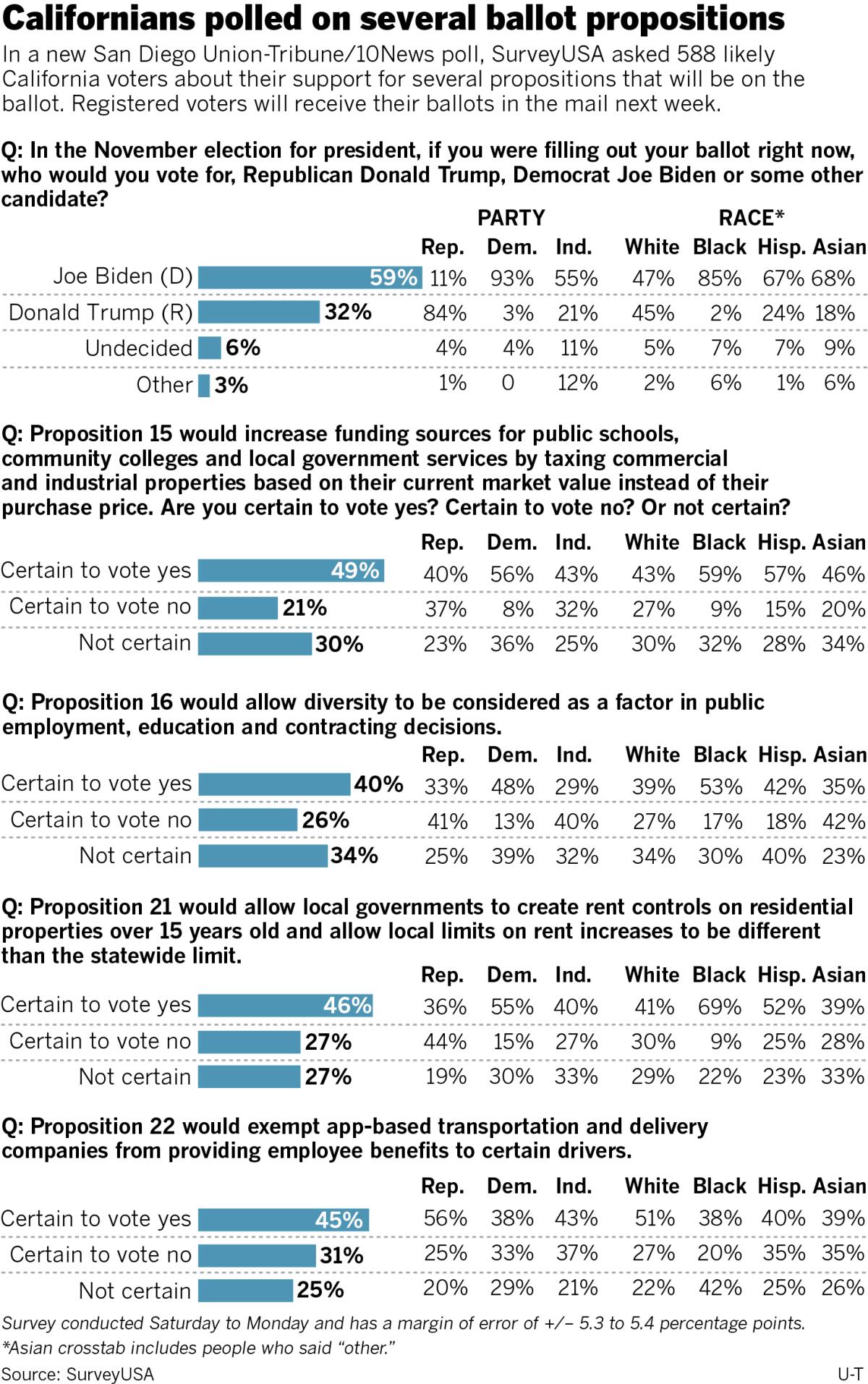
In the wake of widespread protests over police brutality, and a national reckoning with racism and discrimination, state legislators thought it was time to repeal California’s 24-year-old ban on affirmative action and drafted a bill that placed the measure on the November ballot.
Unlike the SurveyUSA poll, two recent polls show more opposition than support.
A survey released earlier this month by the Public Policy Institute of California, a think-tank based in San Francisco, found the measure was favored by just 31 percent of voters, with nearly 50 percent opposed and 22 percent undecided.
Similar numbers surfaced in a poll at UC Berkeley’s Institute of Governmental Studies, the oldest public policy research center in the state. Results showed the measure was backed by 33 percent of the respondents, with 41 percent opposed and 26 percent undecided.
“I can’t image people are changing their position that quickly,” said Brian Adams, a professor of political science at San Diego State University.
“It’s rare to get polling that’s that different, with that large of a discrepancy, so I would assume it has something to do with the wording of the question.”
The poll question said the measure “would allow diversity to be considered as a factor in public employment, education and contracting decisions,” while the ballot language says it would permit “government decision-making policies to consider race, sex, color, ethnicity, or national origin to address diversity.”
While the difference in language is small, Kousser said the slight change may account for the discrepancies.
“You can see large swings in voting based on just the language on the ballot,” Kousser said. “People don’t like the idea of using race to make decisions, but they like diversity, so focusing on the ultimate goal, rather than the mechanism of affirmative action could be a route to victory for those who support it.”
Assemblywoman Shirley Weber, who was the lead author of the bill authorizing the ballot measure, did not respond to requests for comment. In a statement earlier this year, Weber said the ongoing pandemic and tragedies of police violence have forced Californian’s to acknowledge the “deep-seated inequality and far-reaching institutional failures,” that show a person’s race and gender still matter.
Opponents claim that a repeal of Proposition 209, which struck down affirmative action in 1996, is unnecessary because the state already promotes diversity through race- and sex-neutral hiring and admission processes.
SurveyUSA poll results show 48 percent of Democratic respondents would vote yes on Proposition 16, but nearly 40 percent were uncertain. Among Republicans, 33 percent favor the measure and 41 percent oppose it. About one in for Republicans were uncertain how they would vote in November.
The measure appears to have more support among younger voters, with nearly half of those under the age of 50 planning to vote yes on the initiative.
The poll was weighted to U.S. Census Bureau targets for gender, age, race, education and home-ownership in California to ensure results represent the state’s population. The margin of error on proposition survey questions averages about 5.3 percentage points.
Regarding the ballot on ride-share and delivery workers, poll results show 45 percent of likely voters favor Proposition 22, another closely-watched ballot measure. About 31 percent opposed the measure, and one in four were uncertain about how they would cast their vote.
The measure is backed by Uber, Lyft and various tech companies that aim to circumvent a 2018 California Supreme Court ruling that makes it harder for employers to classify workers as independent contractors and therefore withhold worker benefits, such as minimum wage, paid sick days, health insurance benefits and any other benefit the state requires employers to provide.
Opponents and businesses hurt by the ruling said it jeopardizes business and could possibly force companies to shut down service in California or dramatically raise prices.
State legislators passed Assembly Bill 5 and later Assembly Bill 2257, allowing exemptions to the ruling for white-collar jobs, professional services, freelance writers and photographers. Proposition 22 would allow even more exemptions for app-based drivers by creating a third category of employment.
According to the California Secretary of State’s website, the campaign to support the initiative has generated more than $180 million since January, making it the most expensive initiative in the state’s history. Since California campaigns are usually more expensive than those in other states, it is likely the most expensive initiative in U.S. history, even accounting for inflation.
Kousser said favorability at 45 percent is not a sure thing, but the large influx of cash from large tech companies indicates the measure has a good chance of passing.
“It’s going to have an almost unlimited pile of cash supporting it,” he said. “The research I’ve done shows that when the Yes campaign outspends the No campaign two-to-one, the drop off between polls and election day is much smaller. Those initiatives can pick up undecided voters when they have the money to get out their message and drown out the other side.”
Poll data show 46 percent of voters are in favor of Proposition 21, which would allow local governments to diverge from statewide limits on rent increases and create rent controls on certain residential properties.
Another 55 percent of voters plan to vote yes on Proposition 17, a measure that would amend the state constitution to restore voting rights to felons who have served time in prison and are on parole.
In the presidential race, the poll found that Democratic presidential candidate Joe Biden leads Republican President Donald Trump by 27 points in California.
Close to 60 percent plan to vote for Biden and 32 percent favor the president, poll data show, with more Republican voters crossing party lines than Democrats.
About 11 percent of Republicans plan to vote for Biden, while just 3 percent of Democrats favor the president.
Among independents, 55 percent said they would vote for Biden while one in five favor Trump.
Get Essential San Diego, weekday mornings
Get top headlines from the Union-Tribune in your inbox weekday mornings, including top news, local, sports, business, entertainment and opinion.
You may occasionally receive promotional content from the San Diego Union-Tribune.

